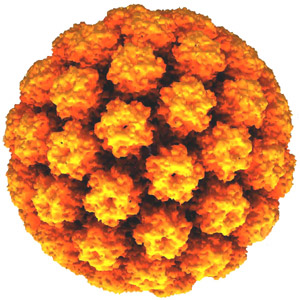Following a review of results from the English HPV primary screening pilot sites and international evidence, the UK National Screening Committee recommended at its January meeting that HPV primary screening should be adopted by the screening programme.
We are now awaiting the decision from the minister regarding the implementation within the English screening programme.

Licence: Creative Commons Attribution-NonCommercial AJ Cann
Should the minister approve the national adoption of the programme change then we need to be ready with a plan to implement. An HPV primary screening implementation group has therefore been established with stakeholders. The group has representation from all the various disciplines involved in the current cervical programme and sentinel (pilot) sites. HPV primary screening would affect all aspects of the programme pathway and would be a significant undertaking.
A complex pathway
There are many aspects that are being discussed. A pathway including HPV testing will be complex. Advice, referral and recall intervals will be more closely related to an individual's results. This means that any new pathway will require robust IT systems to support it. The training of laboratory staff and future workforce requirements are being very carefully considered and this will be taken to the National Cervical Cytology Education Training Committee working group where there is Royal College of Pathologists and British Association for Cytopathology representation.
A strategy for procurement is being discussed in collaboration with our NHS England colleagues. NHS England has been advised by Public Health England (PHE) to take into consideration HPV primary screening when planning any cytology laboratory reconfigurations or procurements.
We are aware that there is some understandable anxiety in the cervical screening laboratories regarding the impact of HPV primary screening on the workforce. Constraints within the laboratories due to staff not being recruited and staff choosing to leave screening are of significant concern. In the national programme we are examining options to mitigate risk to the screening providers to prevent impact on quality of the 14 day turnaround for results. A change to HPV primary screening will affect workloads very significantly. This will be compounded if the UK NSC recommends (and minsters agree) to extend call recall intervals for those who are HPV negative. PHE has commissioned a workflow and economic model to look at this in more detail.
We hope you find this information helpful. We will continue to update on any further developments in the programme as soon as possible.
If you do require further advice please contact Ruth Stubbs the cervical screening programme manager via the screening helpdesk.
PHE Screening blogs
PHE Screening blogs provide up to date news from all NHS screening programmes – replacing our previously published newsletters.
You can register to receive updates direct to your inbox, so there’s no need to keep checking for new blogs.
5 comments
Comment by Clinic Treatment of Genital Warts posted on
Vaccines can protect men and women against certain types of HPV viruses that cause disease. This vaccine is given three times. It is important to remember that in order to get the best protection, one should get three doses of the vaccine completely. The vaccine is most effective if given before a person has first sexual intercourse.
Comment by Ruth Stubbs posted on
Thank you for your comment. The routine HPV programme for girls in the UK consists of a 2-dose schedule. The most up to date advice on the HPV vaccination programme can be found at: https://www.nhs.uk/Conditions/vaccinations/Pages/hpv-human-papillomavirus-vaccine.aspx.
Comment by katrehman posted on
Deride I think you have a very valid point and I go one step further. I think it's outrageous that our details are just taken and put on the call recall systems without our knowledge and/or consent. We really are just rounded up at regular intervals. I've read that opt in programmes are utilised less than opt out but I still get mad at the tactics employed
Comment by Deirdre posted on
My dentist's computer can send me a reminder that a check-up is due every year. Why can't GP surgeries carry out this simple task themselves with cervical screening and tailor the recall intervals accordingly to suit individual patient requirements?
I can appreciate this wasn't available in 1989 when the screening programme was launched, but this is easily done nowadays. Surely a woman's recall status should be a matter for her to decide with her GP and not be a matter for national state control. I find having a national, (and compulsory) databank of the current condition of every woman's vagina to be a gross intrusion, and violation of civil liberties. How is this justified with the Data Protection Act and who else has access to this information?
Comment by Ruth Stubbs posted on
Thank you for your comments. Prior to any invitations being sent to women, the GP has a responsibility to check and inform the programme if an invitation is appropriate and should be sent. The GP can also send a reminder to the woman and this can be done by text (if appropriate). The cervical screening programme is working with NHS England to develop a new IT system to provide a more up to date system to invite women for screening. This work is currently in hand and will consider using other channels of communication to invite women according to their needs.